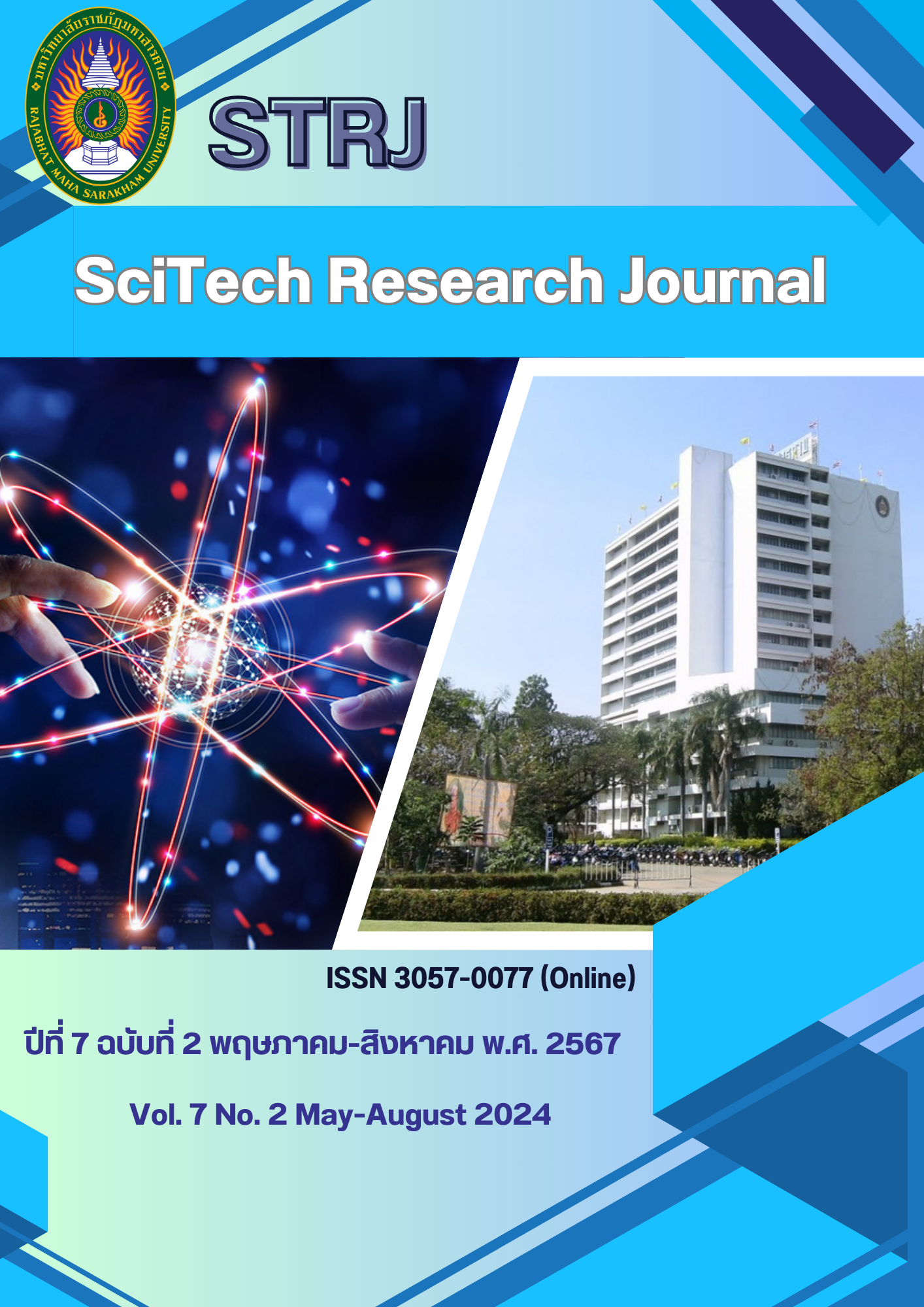Mobile application for Buriram attraction recommendation
Keywords:
Buriram attraction, Recommendation system, Mobile application, Content-based filteringAbstract
This study aims to develop a mobile application for attraction recommendations in Buriram Province and to study user satisfaction with the application. The attraction recommendation feature uses a content-based filtering technique based on the interests of target tourists. The application was developed using Android Studio, Ionic Framework, Angular Framework, Node.js, and the MySQL database management system.
The results showed that the application can recommend attractions according to the interests of tourists, including ranking the places by distance from the user's current location. The application also has functions to search for nearby attractions, display details of the places, and navigate to the attractions with Google Maps. In addition, users can sign up via both Facebook and Google accounts. From the study of the satisfaction of 40 users using a satisfaction questionnaire with a 5-level rating scale, it was found that the overall satisfaction was at the highest level (𝑥̅ = 4.26, S.D. = 0.62). This research result indicates that the developed application can effectively meet the needs of tourists, reduce the time spent searching for information, and increase satisfaction in choosing tourist attractions.
References
Angskun, T. & Angskun, J. (2014). A Personalized System for Travel Attraction Recommendation Using a Clustering Technique and an Analytic Hierarchy Process. Suranaree Journal of Social Science, 8(2), 87-109.
Buriram Provincial Office. (2021). Buriram Provincial Development Plan (Year 2018-2022), 2023 Review. Buriram: Buriram Provincial Office.
Bussaman S. & Ritcharoenwatthu, T. (2015). The Development of a Maha Sarakham Travel Recommendation System by Hybrid Filtering Technique. Maha Sarakham: Rajabhat Maha Sarakham University.
Chainongbua, N. et al. (2023). A Recommendation Mobile Application for Tourist’s Personal Preference by Machine Learning. The 2023 International Academic Multidisciplines Research Conference in Fukuoka, Fukuoka.
Chaopanich, O. & Chaopanich, W. (2019). The Development of The Maha Sarakham Tourist Attractions Recommender System Using Hybrid Filtering Technique. Vocational Education Innovation and Research Journal, 3(1), 25-31.
Chung, N. et al. (2018). The Role of Augmented Reality for Experience-Influenced Environments: The Case of Cultural Heritage Tourism in Korea. Journal of Travel Research, 57(5), 627-643.
Fudholi, D. et al. (2021). Deep Learning-based Mobile Tourism Recommender System. Scientific Journal of Informatics, 8(1), 111-118.
Iglesias-Sánchez, P.P. et al. (2020). Instagram as a Co-Creation Space for Tourist Destination Image-Building: Algarve and Costa del Sol Case Studies. Sustainability, 12(7), 2793.
Juraphanthong, W. & Kesorn, K. (2015). Attraction Recommendation System Using Social Network Information. Burapha Science Journal, 20(1), 209-226.
Ministry of Tourism and Sports. (2023). Thailand Tourism Vision Report 2036. Bangkok: Ministry of Tourism and Sports.
Poolsawas, B. et al. (2017). Developing the Augmented Reality Mobile Application for Historical Site. The Twelfth National Conference on Computing and Information Technology NCCIT2016. Khonkaen: Centara Hotel & Convention Centre Khon Kaen.
Rianthakool, L. & Srika, K. (2021). Application of LINE Chatbot for tourist information service in national park. Proceedings of 59th Kasetsart University Annual Conference: Science, Engineering and Architecture, Agro-Industry, Natural Resources and Environment. Bangkok: University.
Sitivangkul, K. et al. (2022). Machine Learning Technique for Clustering the Tourism Activities in Rural Area – A Case Study of Baan Patan, Chiang Rai. The 27th National Convention on Civil Engineering. Chiang Rai: The Heritage Chiang Rai Hotel.
Srisa-ard, B. (2017). Foundation of Research (10thed.). Bangkok: Suwiriyasan.
Tom Dieck, M.C. & Jung, T. (2018). A Theoretical Model of Mobile Augmented Reality Acceptance in Urban Heritage Tourism. Current Issues in Tourism, 21(2), 154-174.



